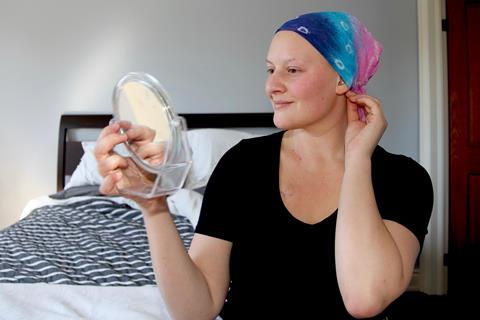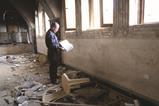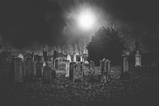On World Cancer Day, Heather Tomlinson reflects on the gifts that emerged from her battle with cancer, revealing the profound blessings and insights she never anticipated would come from such a trying time

Nobody wants or asks to have cancer, if they are of sound mind. But my experience of the disease brought blessings I did not anticipate.
Several years ago now, I was diagnosed with a common form of cancer. I would undergo two operations and a course of radiotherapy, and I have not yet fully recovered from the effects. Despite the fear, the disruption and the tears, I look back and see God’s hand holding mine throughout, and many surprising blessings. Here are some of the insights and gifts I received.
Kindness
For about six months, at any one time there was at least one bouquet of flowers in my living room that had been sent by a kind friend, sometimes two or three. I love the beauty and scent of flowers, so their presence was a particular blessing. Not everyone felt comfortable talking to me about my situation, which I completely understand, and not everyone has time to spare to help practically. But in many ways, through cards, gifts, and texts, I felt the love and the prayers of others, and it helped me enormously.
During my time spent in the various services that help people with cancer, kindness remained a necessary presence. One little charity had several staff who were present when my first operation was cancelled. Having psyched myself up for the procedure, the rather unsympathetic way this news was relayed to me on the phone left me sobbing in public. The whole team stood around me in loving support until I calmed down.
There were a few who were not as supportive – but even this made the loving souls stand out all the more. For example, repeated treatments of radiotherapy felt something like being a piece of meat in a processing factory, as I was forced half naked in front of numerous unsmiling strangers, including men. I was miserable during these twelve days, but two staff showed me great kindness. One in particular I remember for her sensitivity to my unease, and her kind and gentle questions about my wellbeing. Her compassion was so powerful that I can still feel it today. The light shines in the darkness, indeed.
Finding the positives
After the diagnosis I was determined to draw as many positives from the experience as possible. There were many, when considered carefully, in addition to the kindness already mentioned, though that was much more valuable than just a silver lining. Free exercise classes. A GP appointment within one or two days for all my complaints since diagnosis. Many books and stories of people who beat cancer, which inspired me. Time off work which allowed me to pray, reflect and relax much more than usual.
This practice of gratitude has stayed with me and I find myself much more aware of the gifts God gives me every day, those that appear small, yet without them, I would be desperate. Heating in my house, a spare room, musical instruments, the ability to sing, food of my choice, an absence of violence, communication with people I care about, English culture and traditions, a great number of books to read, and so many more wonderful gifts that I had previously taken for granted.
The threat of an early death prompted reflection on what I spend my time on and why. Was I living for what really matters?
More difficult is a delayed recognition and gratitude for the gifts I once had but no longer. Going out in the evening, for example, has become difficult since my radiotherapy, as I am usually too tired, and I have to manage my activity and energy levels carefully, already low from another chronic illness. My concentration and memory has declined so much that I feel as though I’ve dropped about 30 IQ points. Eventually I left a ministry role that I loved, due to fatigue and my reduced capacity to earn income to supplement the low wages. Yet even this has the silver lining of enabling my focus on writing which I also love, and launching a Substack newsletter.
Most of all, especially when witnessing the deep despair that some other cancer patients experience, I developed more gratitude for the gift of faith, which totally transformed me when it intruded into my desiccated hedonistic life many years ago. I recognised that the precious gifts of faith, hope and love that I received through my conversion made cancer much lighter and easier than it could have been, and I longed for other patients to have that same comfort in their sorrows.
What’s really important
My cancer diagnosis was a surprise, over the years I had experienced a number of ‘scares’ and strange lumps and bumps, but the tests always ended up with good news. The first time this happened, in my 20s, it had a powerful effect, prompting me to ask: what am I doing with my life? The second, which required an operation, even led to a change of career, due to deep reflections on what I would want to spend my last months on if I were to be given a terminal diagnosis.
After these first two scares I became somewhat blasé about other tests, but then eventually came the words that no-one wants to hear: “It’s cancer.”
These words bring what is important into much clearer focus. Ever since I had a powerful experience of God’s love, I have longed to share it with others, but at times other activities have got in the way. The threat of an early death prompted reflection on what I spend my time on and why. Was I living for what really matters?
Trust
One of the hardest things about a cancer diagnosis is that for many weeks you have no idea what will happen. Until the lump is excised and examined, and various different tests are done, the doctors do not know what your treatment will be, nor your fate. Hanging over your head is the prospect of chemo, the uncertainty of whether it has spread, no idea whether you will soon be given an ‘expiry date’. It’s not possible to plan anything and you have no control over your future.
For a Westerner this is quite an adjustment, as we are used to having more agency. Of course this is an illusion, which the intrusion of cancer reveals. We can never know what will happen from one day to the next. When this truth is fully accepted, it can inspire greater trust in God.
Living in heaven, the prospect of imminent death is spiritual medicine. Colossians 3:2-6 says: “Think about the things of heaven, not the things of earth. For you died to this life, and your real life is hidden with Christ in God.” But how many of us do this? To do so would be to constantly think of Christ and to be in his glorious loving presence. Yet so often, I get tied up with work, busyness, internet, tasks, social lives, TV, and all the many things of this world that can dull the spiritual senses, rather than entering into all these life experiences with Jesus at the centre.
Thinking of meeting God face to face provoked reflection. Will he say, “well done, good and faithful servant” (Matthew 25:23)? Or will he be disappointed? I was struck many years ago by the powerful testimony of Dale Recinella, a US corporate lawyer who had a vision of Jesus during a near death experience. But it was not a happy meeting: Our Lord was weeping, due to his child’s selfish use of the many talents he had been given up until that point. It prompted a considerable change of lifestyle, Recinella eventually becoming a chaplain to prisoners on Death Row. I highly recommend his memoir, Now I Walk on Death Row: A Wall Street Finance Lawyer Stumbles into the Arms of A Loving God (Chosen Books), as a great inspiration towards reflection and recommitment to God’s will.
I was lucky that I was not given an ‘expiry date.’ But I realised that even a terminal diagnosis can be a blessing, if it gives us the time to say goodbye, organise our affairs, forgive, and right any wrongs in our lives. The reminder of the certainty of death made a deep impression on me. Memento Mori – or ‘remember, we die’ – has been a motto uttered throughout the centuries, even before Christ’s birth, as a great tonic for a good life. Yet mostly in our culture, we try our hardest to forget the ultimate end that we must all share.
I have great gratitude for what cancer did not take from me, as it does for so many others: my hair, various body parts, and my life. I also received the wonderful gift of knowing that should such trials come in the future, I will be OK. “The light shines in the darkness, and the darkness can never extinguish it.” (John 1:5, NLT)





































No comments yet